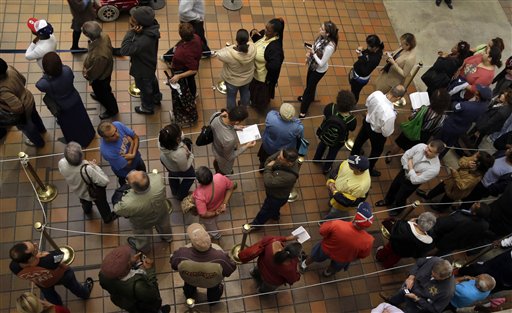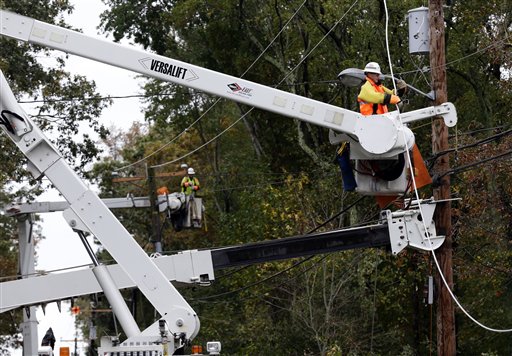As Hurricane Sandy batters the East Coast, many people in the storm’s path are preparing for days of power outages. Meanwhile, pundits are asking how the storm could affect the outcome of the presidential election. If there are still widespread power outages on the East Coast come Nov. 6, could the election be postponed?
Yes, but the details of the postponement would vary state by state. Many states have constitutional provisions or statutes that detail their ability to suspend or reschedule an election in the event of an emergency.
For instance, a section of the election law in Maryland (which is being hit heavily by Sandy) allows the governor to postpone an election or specify alternate voting locations when issuing an emergency proclamation, and it allows the state election board to “petition a circuit court to take any action the court considers necessary to provide a remedy that is in the public interest and protects the integrity of the electoral process” in the event of extraordinary circumstances that don’t constitute a state of emergency.
As for states without specific provisions of statutes, the governor could still reasonably use his or her emergency powers to suspend the election during a state of emergency. The exact person or people who get to decide whether an election is postponed or extended varies from state to state, too; in some cases, it’s the governor or the secretary of state, while in others the power belongs to the state board of elections.
State and local courts, too, have on rare occasion suspended elections. In 1985, a county court (at the request of the county’s election board) suspended a Pennsylvania state election because of flooding and rescheduled the election for two weeks later. And on Sept. 11, 2001, a New York state judge suspended local primary elections due to the terrorist attacks.
Since the Constitution grants states the authority to administer all elections, even federal elections, the federal government does not explicitly possess the power to suspend or postpone a presidential election. However, Congress does have the right to mandate the timing of federal elections, and since the Presidential Election Day Act of 1845 presidential elections have been held on the first Tuesday after the first Monday of November in election years. Hypothetically, given Congress’ authority over the timing of federal elections, Congress could pass a law regarding emergency rescheduling of a federal election. Similarly, the president could use his emergency power in such a way as to disrupt states’ ability to conduct elections, but this has never happened (and would likely be highly controversial if it did happen).
Although states may reschedule a canceled or suspended election at their discretion (or according to their individual election laws), they must choose their presidential electors by the “safe harbor” deadline, which is six days before the Electoral College votes. This year, the Electoral College convenes on Dec. 17, which means that even if states do postpone their elections because of Sandy, they must choose their electors by Dec. 11.
– L.V. Anderson, Slate
Send questions/comments to the editors.




Comments are no longer available on this story